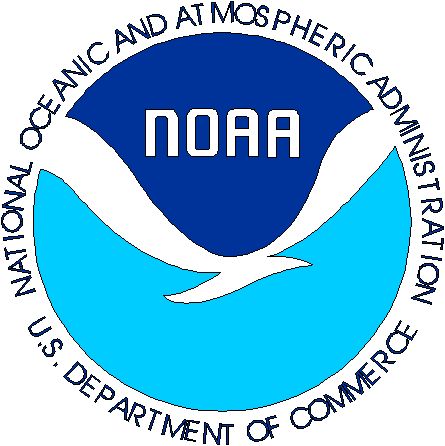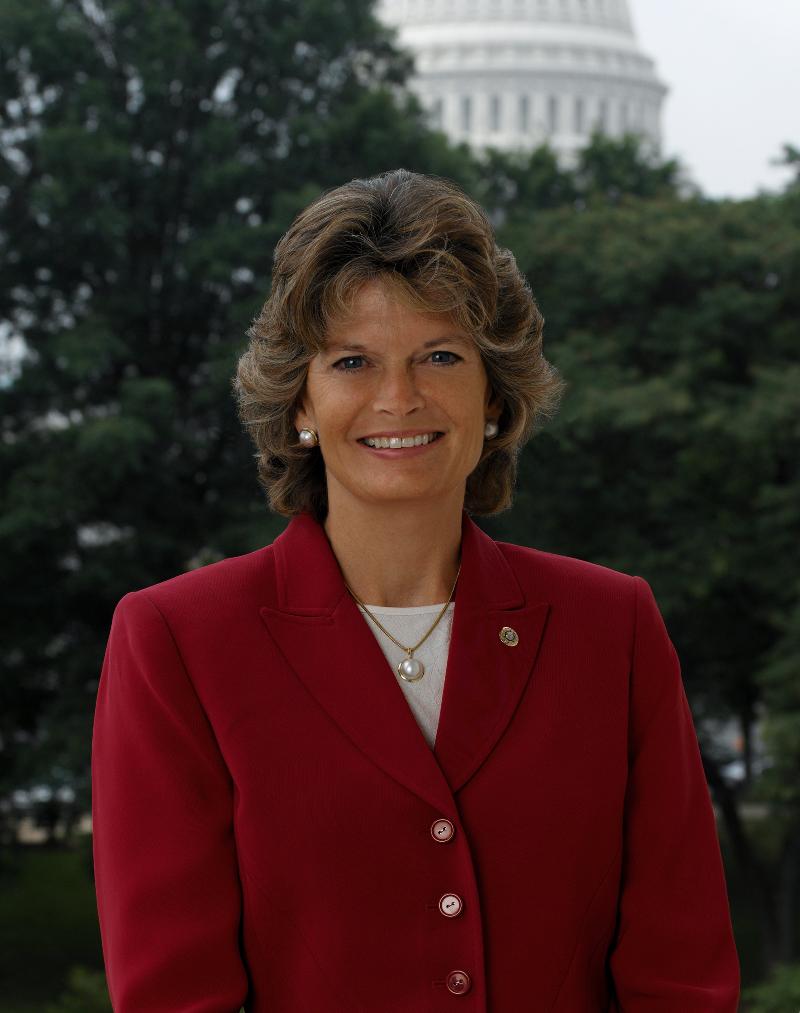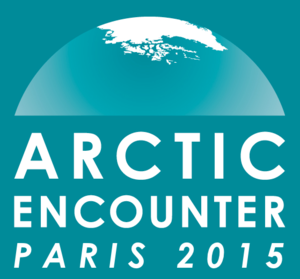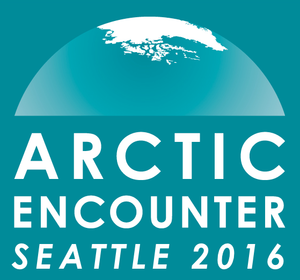|
|
|
|
|
|
|
|
2015 Arctic Energy Summit, September 28-30, 2015 (Fairbanks, Alaska, USA). The Institute of the North's 2015 Arctic Energy Summit builds on legacy efforts to address energy as a fundamental element of the sustainable development of the Arctic as a lasting frontier. Central to this concept is a focus on providing pathways for affordable energy development in the Arctic and for Arctic communities.
Today's Congressional Action:
The Senate will consider a procedural motion regarding federal funding for fiscal year 2016. The House is expected to consider non-Arctic legislation.
|
 Shell Says It Will Abandon Oil Exploration in Alaska Arctic. Royal Dutch Shell will cease exploration in Arctic waters off Alaska's coast following disappointing results from an exploratory well backed by billions in investment and years of work. The announcement was a huge blow to Shell, which was counting on offshore drilling in Alaska to help it drive future revenue. Environmentalists, however, had tried repeatedly to block the project and welcomed the news. Alaska Dispatch News Shell Says It Will Abandon Oil Exploration in Alaska Arctic. Royal Dutch Shell will cease exploration in Arctic waters off Alaska's coast following disappointing results from an exploratory well backed by billions in investment and years of work. The announcement was a huge blow to Shell, which was counting on offshore drilling in Alaska to help it drive future revenue. Environmentalists, however, had tried repeatedly to block the project and welcomed the news. Alaska Dispatch News
Exxon Promotes Arctic Drilling. About 700 people looked on Thursday as an Exxon Mobil official defended American oil exploration in the Arctic. "The world has a tremendous thirst for energy," said Jed Hamilton, senior Arctic consultant at Exxon Mobil Upstream Research Co. "If the U.S. stands in the background, Russia will move forward, and things won't be as good as they could be if the U.S. had a seat at the table in the Arctic." His statement was part of a panel debate at the University of Houston that largely centered on the ecological and physical dangers posed by offshore Arctic drilling. E&E News
 NOAA Seeks Feedback on Plan to Create More Arctic Navigational Charts. The Arctic waters off Alaska are, in a sense, off the charts -- poorly understood and lightly mapped. The National Oceanic and Atmospheric Administration is seeking to change that and also asking the public to weigh in on its plan to create new, detailed and modern Arctic navigational charts. NOAA's Office of Coast Survey is accepting public comments until Thursday on its draft 2015 U.S. Arctic Navigational Charting Plan, released in June. Alaska Dispatch News NOAA Seeks Feedback on Plan to Create More Arctic Navigational Charts. The Arctic waters off Alaska are, in a sense, off the charts -- poorly understood and lightly mapped. The National Oceanic and Atmospheric Administration is seeking to change that and also asking the public to weigh in on its plan to create new, detailed and modern Arctic navigational charts. NOAA's Office of Coast Survey is accepting public comments until Thursday on its draft 2015 U.S. Arctic Navigational Charting Plan, released in June. Alaska Dispatch News
Scientists Relying More on Traditional Alaska Native Knowledge. My mother had so much to tell us about the taiga forest that she took my brothers and me into the woods during the summer when we were children. "Chew this," she'd say, handing us hard chunks of spruce sap. "It's gum." Or "Don't pick all the flowers. Don't pick all the berries. Save some for others and for them to come back next year." Alaska Dispatch News
 Murkowski Leads Colleagues on Whirlwind Tour of Arctic Nations. Sen. Lisa Murkowski headed out on a whirlwind trip of Arctic nations late Thursday, leading a fact-finding trip with two fellow lawmakers. Murkowski, along with Sens. John Barrasso R-Wyoming, and Mike Rounds, R-South Dakota, is heading to Reykjavik, Iceland; Svalbard, Norway; and Thule, Greenland, before heading to Alaska, where the three will stop in Barrow and Fairbanks. Murkowski, the Senate energy committee chair said she wants to "demonstrate to my colleagues, neither of whom are from Arctic places, but who have an appreciation of energy and our resources ... what some of the challenges are in the Arctic, as well as some of the opportunities that we have." Alaska Dispatch News Murkowski Leads Colleagues on Whirlwind Tour of Arctic Nations. Sen. Lisa Murkowski headed out on a whirlwind trip of Arctic nations late Thursday, leading a fact-finding trip with two fellow lawmakers. Murkowski, along with Sens. John Barrasso R-Wyoming, and Mike Rounds, R-South Dakota, is heading to Reykjavik, Iceland; Svalbard, Norway; and Thule, Greenland, before heading to Alaska, where the three will stop in Barrow and Fairbanks. Murkowski, the Senate energy committee chair said she wants to "demonstrate to my colleagues, neither of whom are from Arctic places, but who have an appreciation of energy and our resources ... what some of the challenges are in the Arctic, as well as some of the opportunities that we have." Alaska Dispatch News
A Record Number of Arctic-Going Vessels Have Permits to Travel the Ice-Free Route North of Russia. The Arctic Sea shipping routes north of Canada and Russia are ice-free, and a record number of ships have obtained permits for the northeastern passage. This won't make the Arctic an ocean-going super highway. But the pieces are in place for much greater traffic. Quartz
|
|
Legislative Action
No Arctic legislation was formally considered Friday.
|
|
Future Events
2015 Arctic Science Conference, October 1-3, 2015 (Anchorage, Alaska, USA). The conference theme is "Healthy Estuaries: Sustainability and Resilience." Conference topics include traditional scientific disciplines, science education, arctic social sciences, biomedical research, and artistic interpretation of the evolving North. Abstract submissions are now being accepted. The deadline is August 1, 2015.
Resources for the Future and the Stanford Woods Institute for the Environment are hosting a seminar to understand the science behind increased shipping and the related impacts on marine life, ecosystems, and the communities that depend on them. Among the speakers will be Dr. Lawson Brigham, from the University of Alaska Fairbanks, an advisor to the USARC, and Ms. Denise Michels, Mayor of Nome, Alaska. Registration required. Available as webcast too. (By the way, RFF's website won't enable you to register using the Safari browser...try Chrome, or another)
The Arctic Circle is the largest global gathering on the Arctic. It is attended by heads of state and governments, ministers, members of parliament, officials, experts, scientists, entrepreneurs, business leaders, indigenous representatives, environmentalists, students, activists, and others from the growing international community of partners and participants interested in the future of the Arctic. The Arctic Circle highlights issues and concerns, programs, policies and projects; it provides platforms for dynamic dialogue and constructive cooperation. While the plenary sessions are the responsibility of the Arctic Circle, the breakout sessions are organized by various participating partners in their own name and with full authority over the agenda and the choice of speakers.
US Expert Panel on Shaping Global Policies for the Arctic : Penn State University, October 20, 2015 (State College, PA, USA). Penn State University will host an afternoon panel of national experts in the Arctic and in US interests in the region. Building on the law of the sea expertise of VADM James Houck (former Navy Judge Advocate General and now Interim Dean of the Law School and School of International Affairs at Penn State) and the knowledge of the changing Arctic environment of RADM David Titley (former head of the Navy's Task Force Climate Change and now professor from practice in the Department of Meteorology), the panel brings together experts in science, law, policy, and Arctic diplomacy. We see these experts individually at events in Washington, but Penn State is doing a great service in bringing them altogether at one event in an region that seldom gets such first hand expertise.
The Polar Oceans and Global Climate Change, November 3-6, 2015 (La Jolla, California USA). The American Polar Society will host this Symposium at Scripps Institution of Oceanography. A flyer with a partial list of presenters is available on the Society's website (americanpolar.org) and from the Society's Membership Chairman by email.
Forum for Arctic Modeling and Observational Synthesis Meeting, November 3-6, 2015 (Cape Cod, MA, USA). On November 3rd, the 2015 School for young scientists will consider "Regional Oceanography of the Arctic marginal seas" with lectures covering major features of atmospheric, sea ice and oceanographic regimes of the: Bering, Chukchi, Beaufort, East-Siberian, Laptev Sea, Kara, Barents and Nordic seas. On November 4-6, the meeting portion will summarize project accomplishments for the last 3 years of activities and will focus on the formulation of scientific questions and directions for FAMOS future research (2016-2019) to: (a) improve Arctic modeling, employing very high resolution models; (b) develop and test new arctic monitoring/observing systems and (c) improve predictions of Arctic environmental parameters with reduced uncertainties.
Due North: Next Generation Arctic Research & Leadership, November 5-8, 2015 (Calgary, Alberta, Canada). The Association of Canadian Universities for Northern Studies (ACUNS) will convene an interdisciplinary conference of early career scientists working on Arctic issues. Topics will include: Arctic Communities, Arctic Sustainable Development, Arctic Wildlife, Ecosystem and Biodiversity, Arctic Food Security, Arctic Landscapes, Climate Change and Adaptation, Disaster Risk Management, Policy, Politics and Leadership, Arctic Environment (Data and Techniques), Arctic Resources, and Future of Arctic.
Matchpoints Seminar, November 12-13, 2015 (Aarhus, Denmark). The purpose of the conference is to provide a forum for policy-makers and academics to deliberate on how the security, resilience and sustainability of the globalized Arctic region and its peoples may be enhanced, and what instruments of governance may most suitably contribute. The conference will spell out (1) how the different relevant dimensions of security (military, economic, environmental, energy and human security) manifest themselves in the governing / governance arrangements in the Arctic; (2) how the challenges associated with each manifest themselves, individually and together; and (3) what forms of governing arrangements can best help to address the challenges. The conference will also focus on (4) how the Nordic countries and nations, including Greenland, the Faroe Islands and Aaland Islands, may contribute to the peace, stability and prosperity of the Arctic region through collaborative efforts based on their shared social, human, environmental and democratic values.
Arctic Observing Open Science Meeting, November 17-19, 2015 (Seattle, Washington). The Arctic Observing Open Science Meeting will be 2.5 days and held at the Hyatt at Olive 8 in Seattle, Washington. The conference will bring together individuals and teams involved in the collection, processing, analysis, and use of observations in the Arctic - from academia, agencies, industry, and other organizations. The meeting will be convened as a combination of plenary talks, parallel science sessions, and a poster session. The agenda and registration information will be forthcoming.
In the Spirit of the Rovaniemi Process 2015, November 24-26, 2015 (Rovaniemi, Lapland, Finland).When the Arctic Environmental Protection Strategy, the so-called Rovaniemi Process, was adopted in 1991, it aimed at overcoming divisions and turning the zone of Cold War military tensions into a region of peace and co-operation. In this joint effort focusing on the protection of environment, and later, sustainable development, the Arctic states supported by indigenous organizations laid grounds for institutionalized collaboration and the emergence of Arctic regional identity. The second international conference will bring together decision-makers, scholars, artists, designers and students to address these questions and discuss the Arctic in global, regional and local perspectives.
Arctic Encounter Paris (AEP 2015), December 11-12, 2015 (Paris, France) (During the UN Convention on Climate Change - COP21). The Arctic Encounter Paris will take place at the French Senate at Luxembourg Palace and the  French Military College, École Militaire, in Paris, France, on the final days of the monumental United Nations Convention on Climate Change (COP21) where thousands of global citizens and government delegates will be gathered to deliberate the world's response to our changing planet in Paris. The AEP is the only Arctic policy side event currently planned to take place during the UN Convention. A reception will take place following the closing panel. French Military College, École Militaire, in Paris, France, on the final days of the monumental United Nations Convention on Climate Change (COP21) where thousands of global citizens and government delegates will be gathered to deliberate the world's response to our changing planet in Paris. The AEP is the only Arctic policy side event currently planned to take place during the UN Convention. A reception will take place following the closing panel.
Building upon the preceding Arctic Encounter event in Paris, the third annual Arctic Encounter Symposium (AES) in Seattle, Washington will convene policymakers, industry leaders, and leading experts to confront the  Museum of History and Industry on South Lake Union. A closing reception will take place at the conclusion of the program. The official host of the third annual AES is the leading issues in Arctic policy, innovation, and development. As the largest annual Arctic policy event in the United States, the AES mission is to raise awareness, engage challenges, and develop solutions for the future of a region and a people. The two-day program includes two keynote luncheons, expert plenary sessions, Museum of History and Industry on South Lake Union. A closing reception will take place at the conclusion of the program. The official host of the third annual AES is the leading issues in Arctic policy, innovation, and development. As the largest annual Arctic policy event in the United States, the AES mission is to raise awareness, engage challenges, and develop solutions for the future of a region and a people. The two-day program includes two keynote luncheons, expert plenary sessions,
|
|

  
4350 N. Fairfax Drive, Suite 510
Arlington, VA 22203, USA
External links in this publication, and on the USARC's World Wide Web site ( www.arctic.gov) do not constitute endorsement by the US Arctic Research Commission of external Web sites or the information, products or services contained therein. For other than authorized activities, the USARC does not exercise any editorial control over the information you may find at these locations. These links are provided consistent with the stated purpose of this newsletter and the USARC Web site.
|
|
|
|
|
|
|
|
|